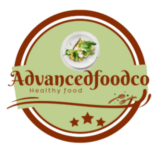The Benefits and Importance of Organic Products 2023
Introduction:
The Benefits and Importance of in a world where health-conscious choices and sustainability are gaining momentum, organic products have become a popular choice for consumers.
From the produce aisle to your skincare routine, this blog post explores the many facets of organic products, their benefits, and why they matter for a healthier planet.
Defining Organic Products:
Are those that are cultivated or produced using organic farming practices.
These practices prioritize soil health, environmental sustainability, and the well-being of both animals and humans.
Are typically free from synthetic pesticides, herbicides, genetically modified organisms (GMOs), and artificial additives

Organic products
The Benefits and Importance of Organic
A Greener Choice:
One of the most significant benefits of is their reduced environmental impact.
Organic farming methods promote biodiversity, protect soil quality, and minimize water pollution.
By choosing organic, you support practices that contribute to healthier ecosystems and mitigate climate change.
Nutrition and Health:
Organic food products are often richer in essential nutrients, including vitamins, minerals, and antioxidants.
They are also free from harmful chemicals, hormones, and antibiotics, making them a healthier choice for you and your family.
When you consume , you reduce your exposure to potentially harmful substances.
Supporting Animal Welfare:
Organic farming extends its ethical principles to animal welfare.
Organic livestock are typically raised in conditions that prioritize their well-being, allowing them access to the outdoors and prohibiting the use of growth hormones and antibiotics.
Choosing organic products means supporting more humane treatment of animals.
Taste and Quality:
Many consumers find that organic food products offer superior taste and quality.
This is often attributed to the healthier soil and the absence of synthetic chemicals, allowing the natural flavors of the produce to shine through.
Whether it’s a crisp organic apple or a robust cup of organic coffee, the taste is undeniably delightful.
Organic Beauty and Personal Care:
The benefits of organic products extend beyond the kitchen.
Organic beauty and personal care products are free from harmful ingredients like parabens, phthalates, and synthetic fragrances.
They are gentler on your skin and are often cruelty-free, aligning with ethical and sustainable beauty practices
Empowering Sustainable Agriculture
By choosing organic products, you become an advocate for sustainable agriculture.
You support farmers and producers who are dedicated to responsible land stewardship and ethical farming practices.
Your consumer choices have the power to drive positive change in the food and agricultural industries
Access and Affordability:
While were once considered a premium option, their availability and affordability have improved over the years.
Many local farmers and producers have embraced organic practices, making these products more accessible to a wider range of consumers.
Additionally, the long-term health benefits often outweigh the slightly higher upfront cost.
Conclusion:
In conclusion, choosing organic is not just about making a purchase;
it’s a conscious decision to promote a healthier planet and a more sustainable future.
Whether you opt for organic fruits and vegetables, dairy products, or personal care items,
your choices have far-reaching implications.
The Power of Your Choices
Choosing organic products goes beyond just the food you eat or what you apply to your skin.
It is an overall philosophy that influences your daily choices.
This way of life includes selecting eco-friendly cleaning products and supporting sustainable fashion brands that use organic textiles.
By aligning your lifestyle with your values of health and sustainability, you can contribute to a healthier planet.
It is important to be mindful of the resources we use, the ways we dispose of our waste, and the impact of our daily choices on the environment.
Making small changes in our everyday choices can make a big difference in promoting a sustainable and healthy world for ourselves and future generations.
The Organic Lifestyle:
Choose to support health, sustainability, and ethical practices.
Every time you choose organic, you make a positive impact on the industry and send a message to manufacturers and policymakers that a sustainable future is possible.
Your choices create a demand for organic products and contribute to a more sustainable, equitable, and compassionate world.
Thank you for promoting better alternatives and shaping a more sustainable future.

Drinking Plants:

The Organic Lifestyle:
Local and Seasonal :
Choosing locally sourced and seasonal organic products is an excellent way to reduce your ecological footprint and improve your community’s economy.
It guarantees freshness, lowers carbon footprint, and enhances dietary variety.
Look for organic farmers’ markets in your area or join a community-supported agriculture (CSA) program for weekly deliveries.
Organic Gardening and Homegrown Goodness
Starting an organic garden is a great way to take charge of your health and wellness.
By growing your own food,
you can rest assured that you and your family are not consuming potentially harmful chemicals and pesticides. Additionally, planting and tending to your garden creates a closer connection to the environment and helps promote sustainable living. You don’t need a lot of space to create a garden either.
Even a small balcony can be transformed into an urban oasis with some containers and careful planning.
Organic gardening also helps support local ecosystems by providing food and habitat for pollinators, such as bees and butterflies.
So, whether you have a green thumb or are a novice, consider starting your organic garden today and enjoy the benefits of fresh, healthy, and sustainable produce.
Educate and Advocate:
Advocating for organic products involves educating others about their benefits, supporting sustainable agriculture initiatives like community gardens and farmer’s markets, and promoting environmental policies that encourage organic farming practices.
The Power of Labeling and Certification:
When buying organic products, check for trusted certifications like USDA Organic seal or European Union Organic logo to guarantee you’re getting products that meet strict organic standards.
Some terms on labels like “natural” or “green” do not necessarily mean they’re organic, so make sure to look for the specific organic certification logos.
Checking labels and certifications ensures that you are buying truly organic products and supporting environmentally sustainable farming practices.
Your Choices, Your Impact:
Choosing products sends a strong message to support a sustainable and ethical food system that values the planet, animal welfare, and farmers’ health.
It also promotes biodiversity and mitigates climate change.
Consumers can make a big difference by influencing the market to prioritize healthier and ethical options.
Support organic farming for a better future.
Conclusion:
Have become popular due to people’s individual choices to prioritize sustainability and well-being.
By consuming organic food and household/beauty products, they support healthier ecosystems, animal welfare, and individual health, while minimizing the use of harmful chemicals.
Choosing organic contributes towards building a sustainable and ethical world, where farmers are fairly paid and animals are free from cruelty.
It’s all about small decisions that have a huge impact.
A Brighter, Greener Future.
Choose to support sustainable and ethical practices.
By consuming eco-friendly goods, you encourage agriculture that prioritizes soil fertility and biodiversity.
Supporting organic businesses also means promoting fair trade and humane working conditions.
Keep exploring and promoting organic options to contribute to a greener, brighter and more equitable future for our planet’s health and well-being.

natural organic food
The Future of Organic Products:
Organic farming improves with regenerative practices and precision agriculture.
This ensures a steady supply of sustainable organic products while reducing resource usage and mitigating climate change. As the industry evolves, it’s important to recognize these advancements for environmentally-friendly agriculture.
The Role of Technology:
Technology is transforming the organic movement by providing tools and solutions that help improve the transparency and efficiency of the organic supply chain.
Blockchain technology allows consumers to trace the origin of organic products, enabling them to make informed choices about the products they buy.
AI-powered crop monitoring provides farmers with real-time data and insights to help them make informed and sustainable decisions about their farming practices, while improving crop yields and reducing waste.
These and other technological innovations are making it easier for producers to comply with organic standards and for consumers to access healthy, sustainably produced food.
Technology is a powerful tool in advancing the organic movement, helping to create a more sustainable and healthy food system for everyone.

The Role of Technology:
Meeting Global Challenges:
Organic farming is expanding globally and helping small-scale farmers and tackling environmental and food challenges.
As demand grows, farmers will have opportunities to provide healthy and sustainable produce.
This shift promotes soil conservation practices and benefits climate and workers.
We should support this organic revolution for a more sustainable food system.
The Importance of Education:
Organic farming prioritizes soil health, biodiversity,
and natural processes, helping to minimize harm to the environment, wildlife, and human health.
Consumers can support these practices by choosing products with credible organic certifications,
such as USDA Organic. With increased awareness, the organic movement can promote healthy choices for individuals and the planet.
Closing Thoughts:
create a better world through healthier ecosystems, sustainable agriculture, and safer consumption.
They also support animal welfare and impact global well-being through increased biodiversity, stronger local economies, and reduced greenhouse gas emissions.
The organic movement must adapt to changing consumer demands and presents an opportunity for businesses to stand out. It can reduce greenhouse gas emissions and support sustainable agriculture, crucial for a healthier planet and more equitable society.
Supporting and businesses can make a positive impact on health, the environment, and the economy.
Related
Discover more from Advance food co
Subscribe to get the latest posts sent to your email.


